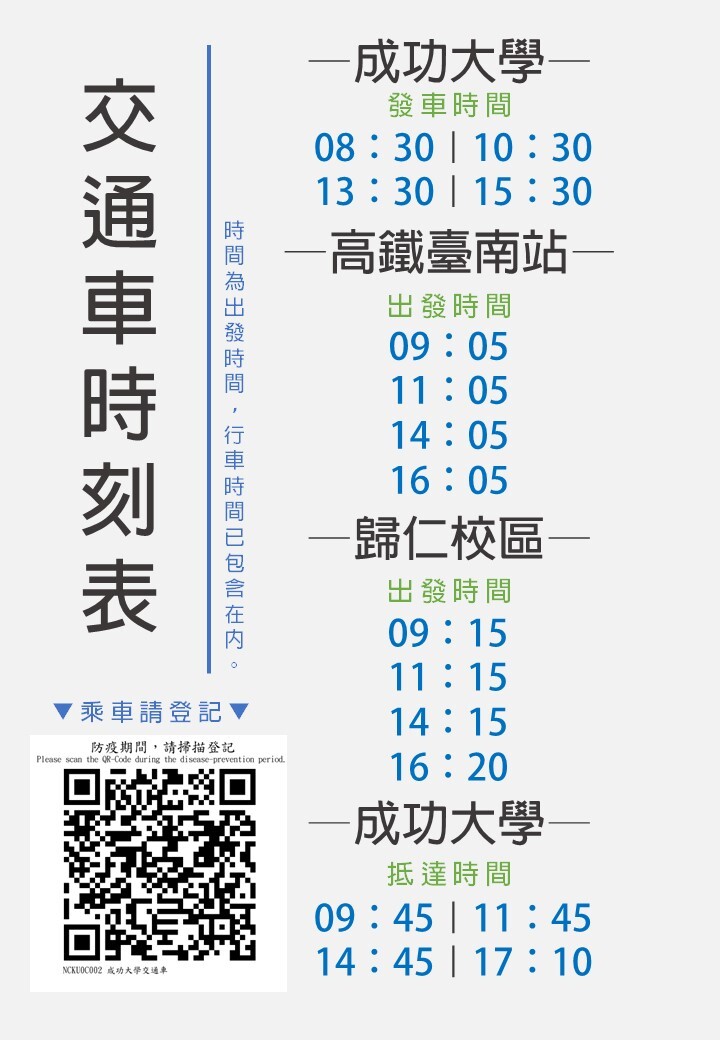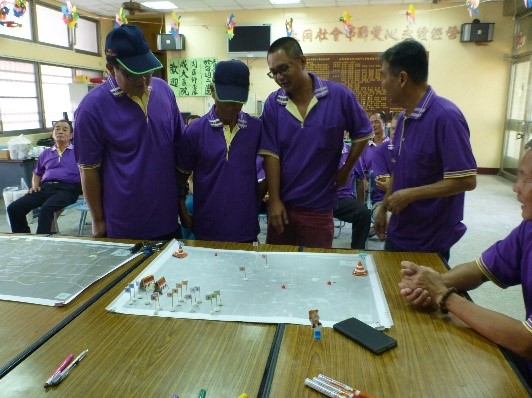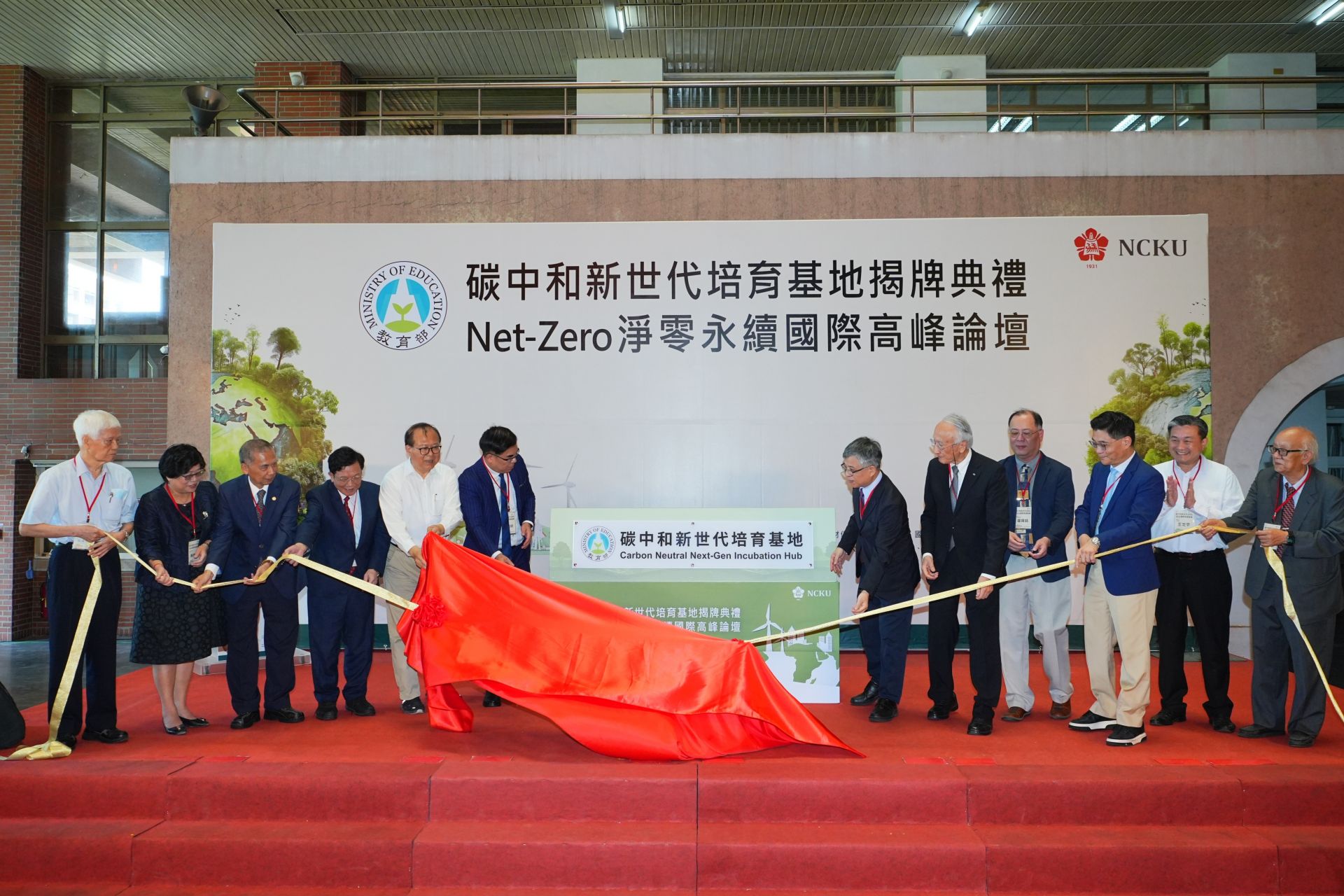NCKU Hosts International Short Course on Land Subsidence and Water Industry for Sustainable Development in Tidal Areas
To address the challenges posed by global climate change on coastal regions, National Cheng Kung University (NCKU) hosted a six-day international short course titled "Land Subsidence and Water Industry: Challenges and Opportunities in Tidal Areas" from November 18 to 23, 2024. The event brought together 30 experts and scholars from 10 countries, including the Netherlands, Japan, Iran, India, Indonesia, Nigeria, Ukraine, Malaysia, the Philippines, and Taiwan. The participants gathered in Tainan to discuss critical issues such as land subsidence and water resource management in tidal areas, seeking sustainable solutions for these vulnerable regions.
The course was co-organized by NCKU's Disaster Prevention Education Center (DPEC), the International Commission on Irrigation and Drainage (ICID), and the ICID's Working Group on Sustainable Coastal Environment Regeneration (WG-SCER). The event aimed to facilitate knowledge exchange between academia and industry, focusing on strategies to mitigate the risks faced by low-lying coastal areas amid extreme weather and rising sea levels.
During the opening remarks, NCKU's Vice President for International Affairs, Professor Sun-Yuan Hsieh, highlighted the immense challenges posed by global climate change and sea-level rise on coastal regions. He emphasized that the course serves as a crucial platform for academic and technical exchange, promoting international cooperation and the sharing of solutions, which are vital for advancing the United Nations Sustainable Development Goals (SDGs).
Former President of ICID, Professor Bart Schultz, noted that land subsidence in tidal areas is worsening due to climate change and rising sea levels, complicating water resource management. Since its establishment in 1950, ICID has been instrumental in providing a platform for international technical cooperation, contributing to significant progress in global water management through initiatives like the World Water Forum and World Water Development Report.
Dr. Vijay K Labhsetwar, former Director of ICID, underscored the need for greater attention to the hidden risks in tidal areas, such as land subsidence, saltwater intrusion, and coastal erosion. He emphasized that the goals of ICID’s WG-SCER include addressing these escalating challenges and promoting sustainable regeneration practices.
Professor Hsiao-Wen Wang, Director of the Disaster Prevention Education Center, noted that human activities and economic development have increased the exposure of coastal areas to risks such as land subsidence. The added impacts of climate change further exacerbate these vulnerabilities. She advocated for community-based adaptation strategies to enhance resilience against climate-related risks. ICID, established in 1950 by organizations including the United Nations Food and Agriculture Organization (FAO) and the World Bank, plays a significant role in fostering global dialogue and advocacy through initiatives such as the World Water Forum and the World Water Development Report. Professor Wang expressed confidence that the collaboration between NCKU and ICID in organizing this course would enhance cross-disciplinary dialogue and contribute to the achievement of sustainable development goals.
The course's first day featured a keynote lecture by Dr. Shen-Yung Hsu from Sinotech Engineering Consultants, Ltd., who addressed coastal protection and defense in Taiwan under climate change. Dr. Watanabe from Japan then shared valuable insights into drainage engineering in large coastal delta regions, offering participants practical knowledge and lessons from Japan's experience.
The one-week course also included several field visits, such as on-site discussions at Qigu Lagoon and sandbar issues arranged by the Taijiang National Park, a field survey of coastal erosion at the Sixth River Branch of the Water Resources Agency, and a visit to the Xingzhong Sluice Gate Rubber Dam organized by the Kaohsiung Management Office of the Irrigation Agency, Ministry of Agriculture. These visits allowed participants to gain a deeper understanding of Taiwan's challenges and successful experiences in relevant fields and to share their own research findings and response strategies, offering practical solutions for the sustainable development of tidal areas.
During the course, participants engaged in group discussions, synthesizing lessons from the classroom and field visits to propose concrete solutions based on real-world cases faced by their respective countries.Throughout the course, participants engaged in group discussions, applying their learning to real-world cases from their respective countries. The collaborative efforts resulted in concrete proposals addressing sustainable development in tidal areas, integrating practical solutions to enhance climate resilience.
The international short course not only strengthened cooperation among experts and scholars but also showcased Taiwan's technological achievements in disaster prevention, ecological conservation, and water resource management. Since its establishment in 2016, the Disaster Prevention Education Center has been committed to promoting Taiwan's expertise and technology in disaster prevention to developing countries in Southeast Asia and South Asia. Moving forward, the center aims to continue partnering with global stakeholders to address climate change challenges and advance disaster resilience and environmental protection initiatives worldwide.
Provider: NCKU News Center
Date: 2024-11-18
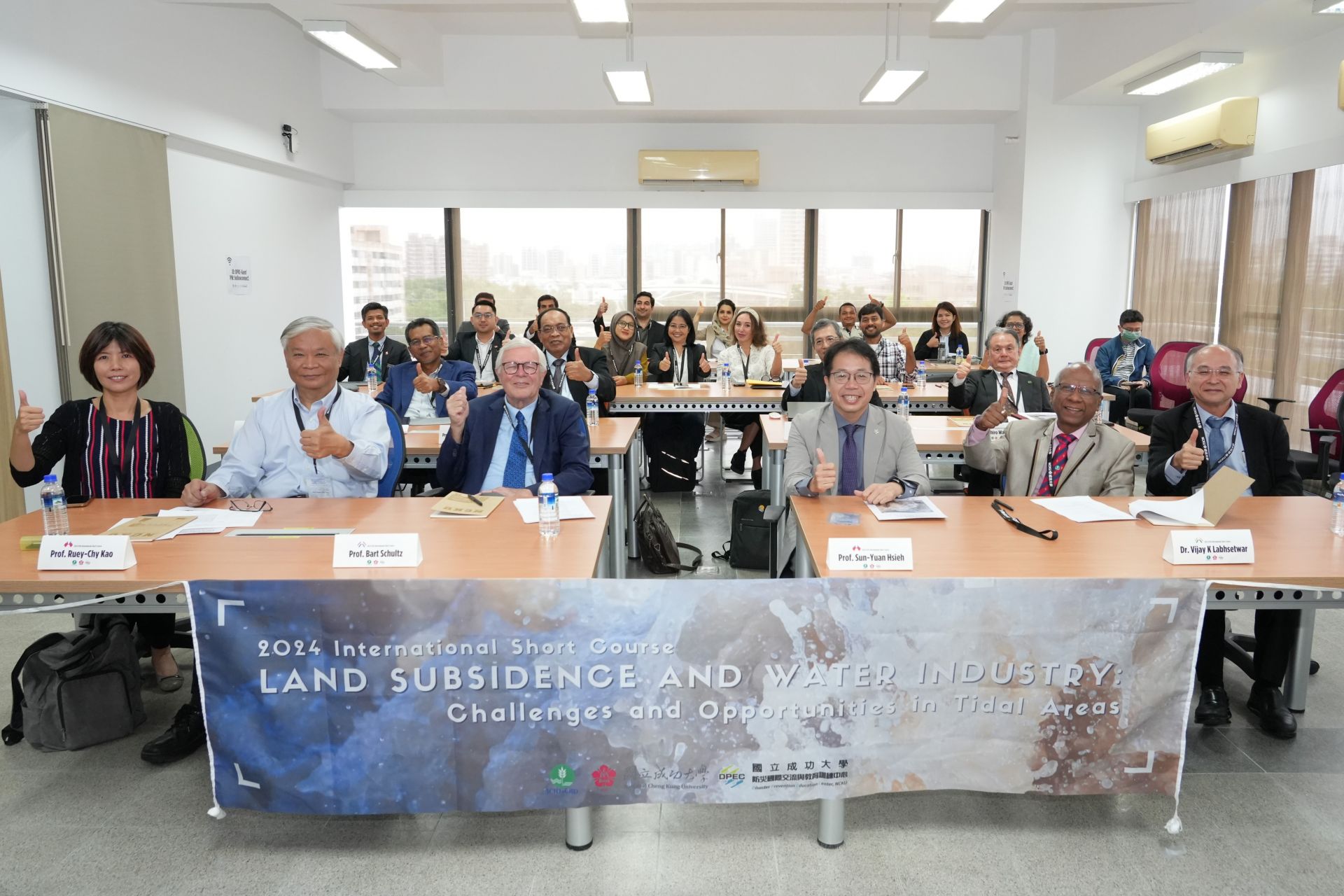
To address the challenges posed by global climate change on coastal regions, National Cheng Kung University (NCKU) hosted a six-day international short course titled "Land Subsidence and Water Industry: Challenges and Opportunities in Tidal Areas" from November 18 to 23, 2024.
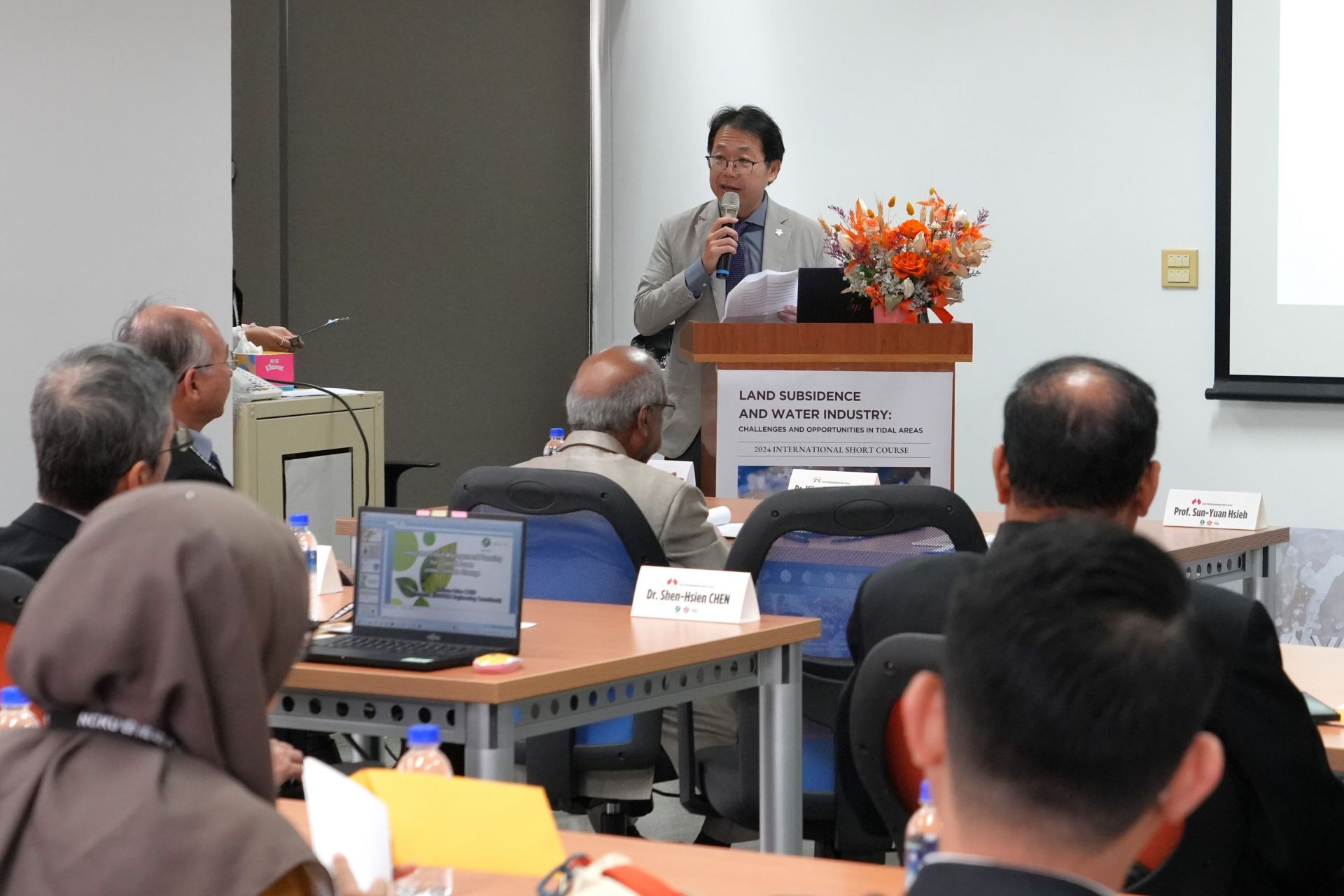
During the opening remarks, NCKU's Vice President for International Affairs, Professor Sun-Yuan Hsieh, emphasized that the course serves as a crucial platform for academic and technical exchange, promoting international cooperation and the sharing of solutions, which are vital for advancing the United Nations Sustainable Development Goals (SDGs).
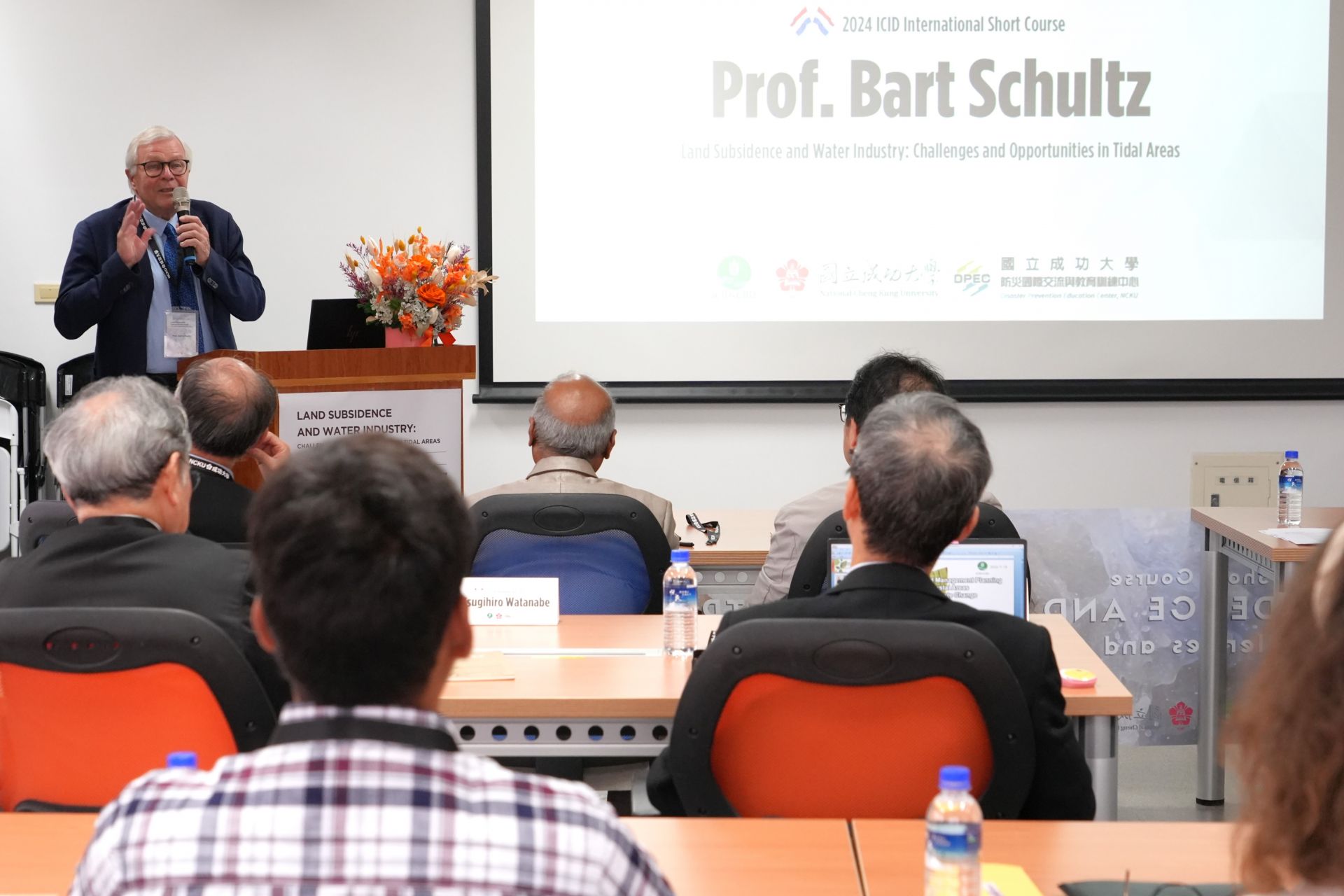
Former President of ICID, Professor Bart Schultz, noted that land subsidence in tidal areas is worsening due to climate change and rising sea levels, complicating water resource management.
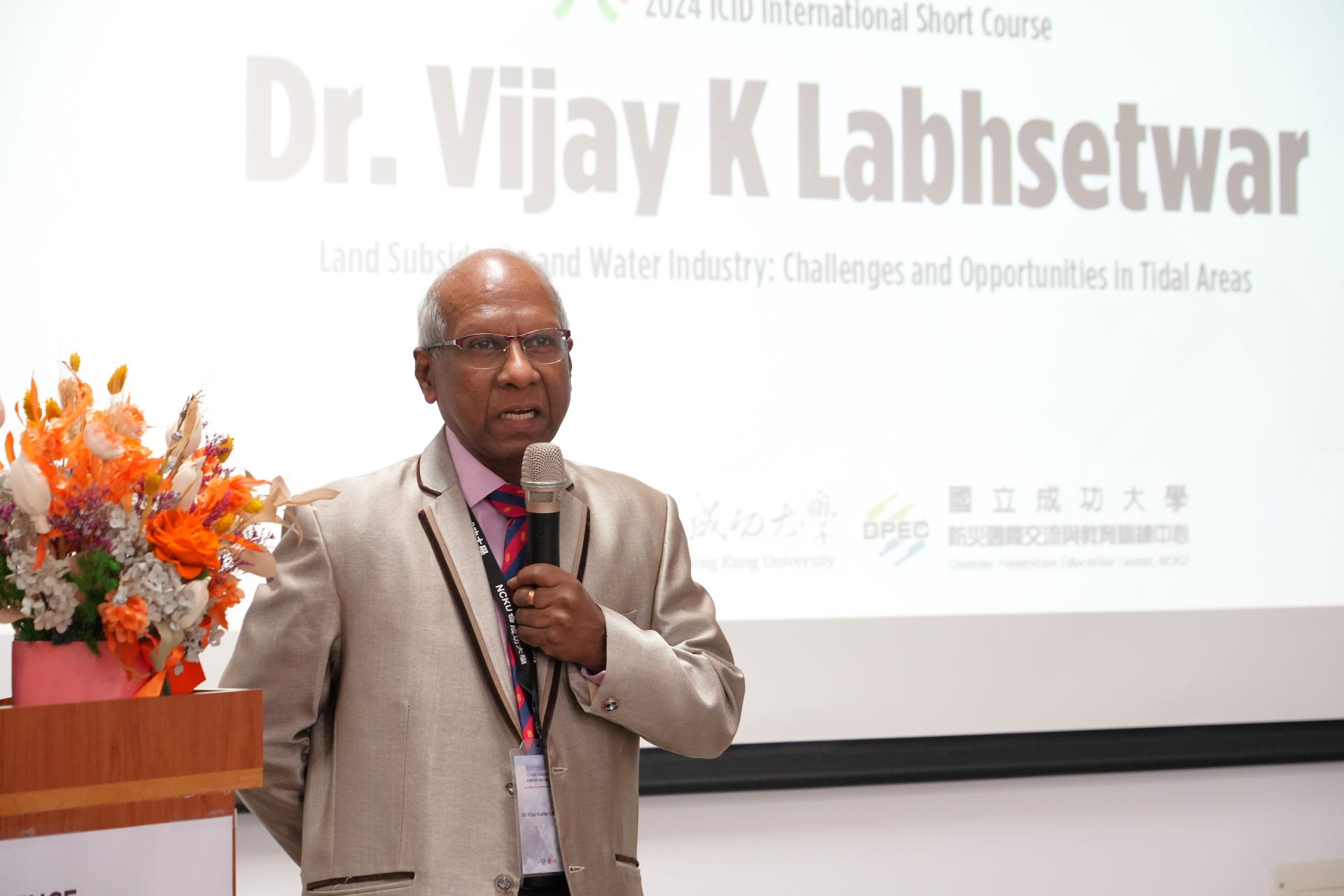
Dr. Vijay K Labhsetwar, former Director of ICID, emphasized that the goals of ICID’s WG-SCER include addressing these escalating challenges and promoting sustainable regeneration practices.

Professor Hsiao-Wen Wang, Director of the DPEC, expressed confidence that the collaboration between NCKU and ICID in organizing this course would enhance cross-disciplinary dialogue and contribute to the achievement of sustainable development goals.

The event brought together 30 experts and scholars from 10 countries, including the Netherlands, Japan, Iran, India, Indonesia, Nigeria, Ukraine, Malaysia, the Philippines, and Taiwan.






